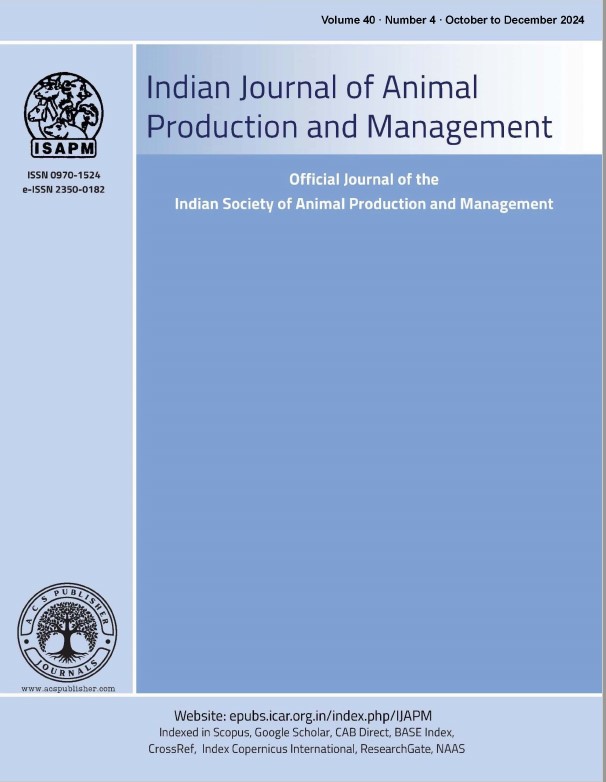Welfare Issues of Working Equines in India and Strategies for their Mitigation
DOI:
https://doi.org/10.48165/ijapm.2024.40.SI.16Keywords:
equines welfare problems, assessment methodology, mitigation strategiesAbstract
The working equines are important species in India especially for the marginalised, socio economically weaker sections of society. Recent years have witnessed a decline in their population due to various reasons. Numerous work types of working equids including mules, donkeys and horses are found in different states as per work requirement, climate and geography The animals of these species face varied welfare problems. Non availability of adequate recourses, lack of knowledge and skills of rearing communities, metabolic and other diseases are the major welfare problems encountered by these animals. This paper discusses the welfare problems faced by the working equines in India and suggests a methodology for the assessment of welfare of these animals. This paper also offers a detailed strategy and actin plan for the improvement of welfare of these animals in India.
References
Pritchard, J., Lindberg, A.C., Main, D.C.J. and Whay, H.R. 2005. Assessment of the welfare of working horses, mules and donkeys, using health and behaviour parameters. Prev. Vet. Med. 69: 265–283
Dennison, T., Kahn, G., Kahn, R., Pritchard, J. and Whay, H. 2006. A comparative study of the welfare of equines working in the brick kilns of Multan and Peshawar, Pakistan, in 5th International Colloquium on Working Equines. Addis Ababa, Ethiopia
Mitra, D. and Valette, D. 2017. Brick by brick: Environment, human labour and animal welfare. ILO, Brooke ad The Donkey Sanctuary.
Mohite D.S., S.F. Zaman and V.K. Harsola. 2016. Management of olic due to enterolith in a mare. Indian Vet. J., 93 (07): 57-58
Gogoi P., S.K. Pradhan and P. Venkata., 2014. 7th International Colloquium on Owrking Equids. Royal Halloway, University of London.
Ravichandran, T., Perumal, R.K., Kennady, V., Baltenweck, I., Wright, I., Burden, F. and Rahman, H. 2023. Mapping the Indian donkey and mule population and potential intervention strategies and partners. ILRI Research Report 115. Nairobi, Kenya: International Livestock Research Institute (ILRI).

